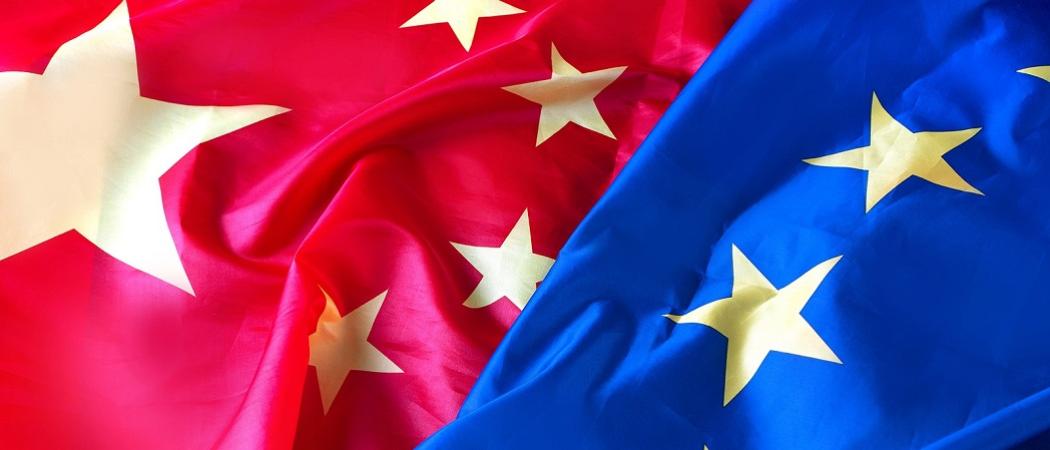EU research chief spells out the frustrations of an ‘unbalanced relationship’

China has to open up a lot more for European researchers, Jean-Eric Paquet the EU’s director-general for research and innovation told the EU’s Research and Innovations days virtual meeting on Wednesday. “The relationship is perceived – and I think rightly – on the European side as unbalanced,” Paquet said. “There is really, essentially, full access to Europe but very cumbersome and formally limited access to resources on the Chinese side.”
China is not obviously eager to open its research up for collaboration with Europeans. “[The Chinese] are impressive in finding where we excel and this is where [they] then concentrate. That’s all fine. But when we want to cooperate in the areas that [China is] starting to excel in – and there are many – this proves to be much more difficult. Reciprocity is very difficult to find,” he said.
Paquet’s sharp comments – the like of which are rarely heard during carefully managed EU conferences – signal the rising frustration in Europe over Chinese policies and behaviour — from trade to human rights and the new crackdown in Hong Kong.
China is keen to work with Europe on ICT, quantum and artificial intelligence research. “But then there are many other areas where it proves to be much more difficult,” Paquet said.
European frustrations with Chinese policies have become much more visible since the pandemic took hold, with Paquet saying the EU and China “could and should” have done more to tackle COVID-19 together.
EU officials also see an opportunity to win trade concessions from Beijing, as the partner that can provide ballast against China’s crumbling relations with the US.
Data difficulties
Access to Chinese scientific data is another frustration. “The [internet] firewall is one illustration of the difficulties to have this balanced and reciprocal relationship,” Paquet said. Meanwhile, “Our data is essentially always available [to the world]”, even if “it’s not always easy to find or perfectly curated.”
Researcher flows are also uneven. The director-general said Chinese researchers come to Europe “in great numbers, and you’re bringing a lot of knowledge and you’re taking a lot [of knowledge] as well. But our researchers really don’t go to China in these numbers,” Paquet said.
Both China and the EU pledged to co-invest up to €630 million in joint research between 2016 and 2020. Of this amount, the EU committed €500 million, with China making up the remainder, said Charlotte Roule, vice president of the EU Chamber of Commerce in China. “We have a discrepancy here,” said Roule, speaking at the session.
World ‘deeply changing’
Paquet said that the EU will be more selective about research partners for its next big research programme, Horizon Europe, which starts next year.
“The DNA of [the Horizon programme] does not change. Cooperation in science is a no-brainer for us. At the same time, the world is deeply changing and we need to revisit the way this is done in practice,” he said.
The EU will become more “specific, nuanced” on how “we open our programmes to the world,” said Paquet.
Political differences with China means Brussels is not likely to offer a broad partnership under Horizon Europe, in contrast to the more expansive outreach to other non-EU countries like Canada and Japan, which EU officials are courting for “associate membership” of the programme. The enhanced level of cooperation provides foreign countries the opportunity to compete for funding on the same terms as EU member states.
“I expect we will – a bit more than in the past – exclude some companies, or countries from participation, notably for security reasons,” said Paquet.
The move follows the decision by several countries including the UK, France and Slovenia, to join the US in restricting investments by Huawei, the Chinese telecommunications giant. The EU is also drawing up plans to make it harder for Chinese and other foreign state-backed firms to buy stakes in European companies.
Paquet said that not all the blame for the “unbalanced relationship” lay with China, and that Europe needed to do its “homework better” too.
He said the EU was working on “a framework of principles for engagement with China. It’s not [putting up] a wall, it’s about engaging with China on a better basis,” he said.
“Europe needs to know and understand China a lot better. I don’t know how China [does] it, but they know us very well,” said Paquet.
‘Reluctance’ to share data
While there’s a willingness in China to work more with European researchers, there is a “reluctance” to share data, said Roule.
There is no requirement under the EU-China research arrangement to publish results from joint projects. “So how much of the unpublished data research partners can share with each other in confidence is unclear,” she said.
Grants for this cooperation are also handled separately in Brussels and Beijing, leading to differences in reporting timetables. “Chinese researchers may be reluctant to share data with EU before having first shared [this data] with their ministry of science and technology,” said Roule.
European companies operating in China meanwhile struggle to access the same opportunities that home grown companies benefit from, she said.
The so-called “high- and new-technology enterprise” status, a Chinese tax break, requires ownership of a company’s key technology to be in China. “For many European companies, they [are] not eligible,” said Roule.





 A unique international forum for public research organisations and companies to connect their external engagement with strategic interests around their R&D system.
A unique international forum for public research organisations and companies to connect their external engagement with strategic interests around their R&D system.